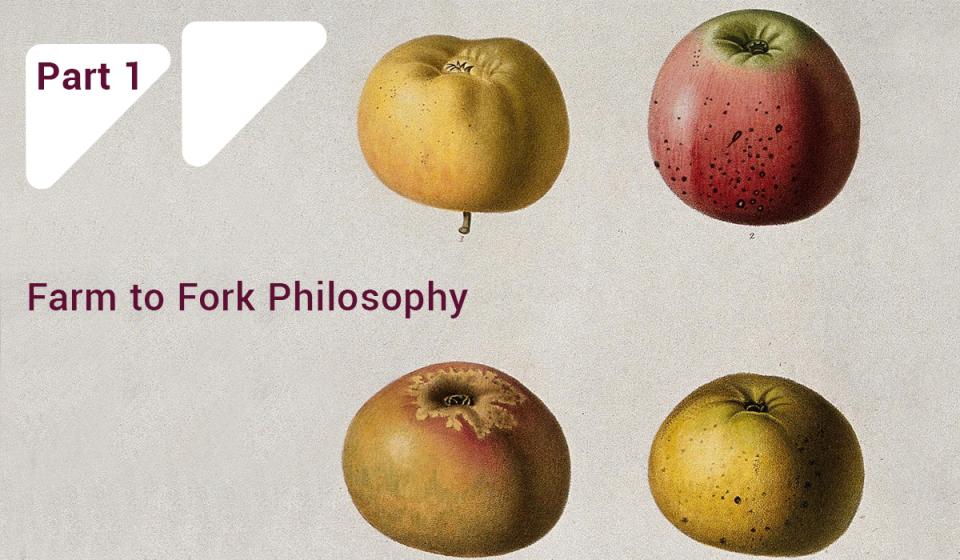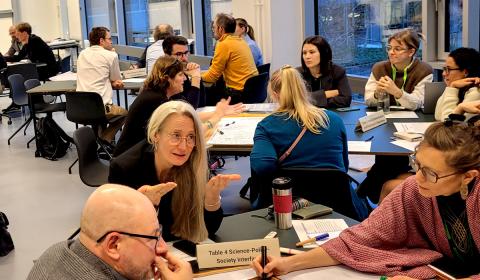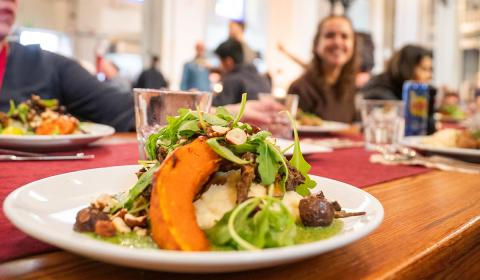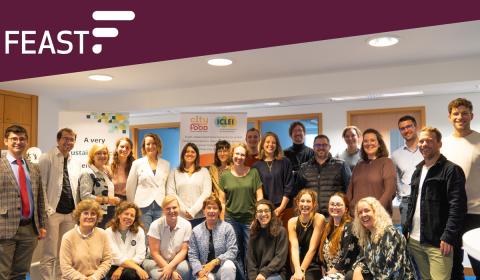
Image source: Wellcome Collection
Credit: Four cultivars of apple (Malus pumila cv.): entire fruit. Coloured etching, c. 1820. Public Domain Mark
“To one degree or another,” writes Michael Pollan in The Omnivore’s Dilemma, “the question of what to have for dinner assails every omnivore, and always has. When you can eat just about anything nature has to offer, deciding what you should eat will inevitably stir anxiety ... .” Pollan contrasts the omnivore with a species like the koala, which does not have to – indeed, cannot – choose between different possible food sources. Humans are at the opposite end of the food choice spectrum. We are, so to speak, super-omnivores. Not only can we eat both plants and animals, but we can mix and synthesise thousands of different plant and animal products, conjuring up an endless stream of edible combinations and concoctions. From Pollan’s point of view, not all these creations are real food; some are merely “edible food-like substances.” The distinction taps into ancient concerns that we humans have become corrupted by greed, laziness, and other vices, that our way of living is no longer natural.
These concerns can be seen in the work of philosophers like Plato, Aristotle and Epicurus, who sought to identify the true nature of humans, and to figure out how we should live in light of that nature. By cultivating good habits and traits like self-control, curiosity, generosity and self-knowledge, they thought, we could live in harmony with one another and with the cosmos itself. By contrast, the failure to cultivate these virtues would lead to misery. In Plato’s Republic, for example, Socrates cautions that giving into the desire for delicious, luxurious, and novel foods sets us on a path to sickness, decadence, and war. Today, this fear is still with us: From Wall-E to The Last of Us, a steady stream of dystopian pop culture artifacts purport to show us what will happen if we don’t stop eating flour, sugar, or junk food.
It is tempting to think that there is some specific diet or way of eating that is natural for all humans, to which we must all return if we want to avoid such a catastrophic future. And indeed, there are some principles that seem to recur across different times and cultures. Strikingly, for example, the healthy diet described by Socrates in Republic sounds quite like what we now call the Mediterranean diet, and it also neatly matches Pollan’s suggestion that we should “eat food, not too much, mostly plants.” Others, however, argue that our true nature is to eat like our Palaeolithic ancestors, while still others suggest that redemption lies in eating intuitively, following the natural cues and rhythms of our bodies.
The bad news is that, even if we did all agree on which is the natural way for humans to eat, currently, it probably would not be possible for the vast majority of humans. But the good news is that change is possible, and it doesn’t require us all to eat the same way. With enough buy-in from individuals, communities and, especially, the public and private sectors, we can foster food systems that enable diverse diets that are healthy and sustainable without being rigid or uniform. Whatever else human nature is, it is adaptable – perhaps more than any other animal. There is no one diet that is natural for all humans, but as ‘super-omnivores’, it is in our nature to get nourishment from an almost infinite variety of sources. That physiological openness, allied with an equal openness to new ideas, and to our fellow humans in all their diversity and vulnerability, might just be our salvation.


